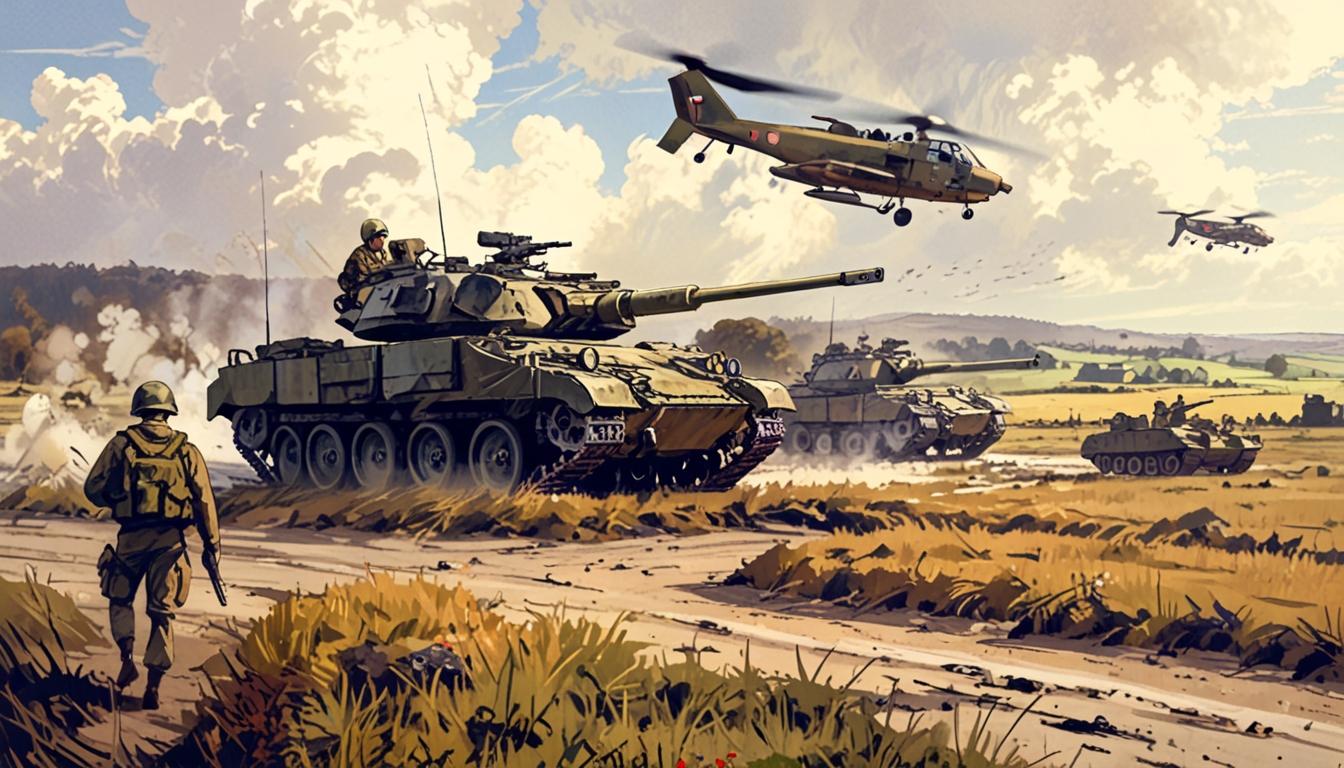British troops preparing for deployment to assist Ukrainian soldiers in drone warfare have encountered significant training obstacles due to stringent health and safety regulations. Reports indicate that soldiers stationed at Salisbury Plain have been prohibited from conducting essential drone operations, such as flying drones over colleagues, even when those colleagues are protected within heavily armoured tanks. This restriction has raised concerns regarding the readiness of British forces amid ongoing tensions in Eastern Europe.
Military personnel have also been instructed to halt practices related to jamming radio control frequencies, a vital tactic used in aerial combat. This ban stems from apprehensions that such activities could disrupt satellite navigation systems and electrical equipment used by local residents near the Wiltshire base.
Labour MP Fred Thomas, a member of the Commons Defence Select Committee, expressed his concerns regarding the implications of these restrictions. Speaking to the Financial Times, he stated, “British soldiers who are deploying as part of a deterrence force to places like Estonia and eastern Europe are going out without the kind of training and capability that is completely bog-standard in warfare now, whether it is in the Middle East or in Ukraine.” He further noted that troops had resorted to purchasing equipment online in an effort to gain practical experience.
Soldiers reported facing bureaucratic hurdles, needing to submit multiple requests for approval to the Military Aviation Authority to fly a drone during training exercises, even when no personnel were present in the tank below. The lack of practical training raises concerns that troops may be inadequately prepared for the complexities of modern warfare upon their arrival at the Russian front.
Drones have emerged as a pivotal element of contemporary combat strategies, admired for their accessibility and affordability. Last month, Defence Secretary John Healey confirmed that the UK government would provide substantial support to Ukraine, including hundreds of thousands of drones as part of a £450 million aid package. The assistance aims to bolster Ukrainian efforts with advanced drone technologies, including first-person view (FPV) drones capable of targeting and drones designed to deliver explosives.
These advanced drone types have been credited with inflicting significant damage on Russian military equipment, accounting for approximately 60-70% of the total destruction reported. However, experts have voiced concerns that without adequate real-life training, the effectiveness of British soldiers on the frontline could be compromised.
The base had previously attracted attention when Prince William, in his capacity as colonel of the Welsh Guards, visited in November 2022, showcasing the integration of drone technology into military operations.
Source: Noah Wire Services
